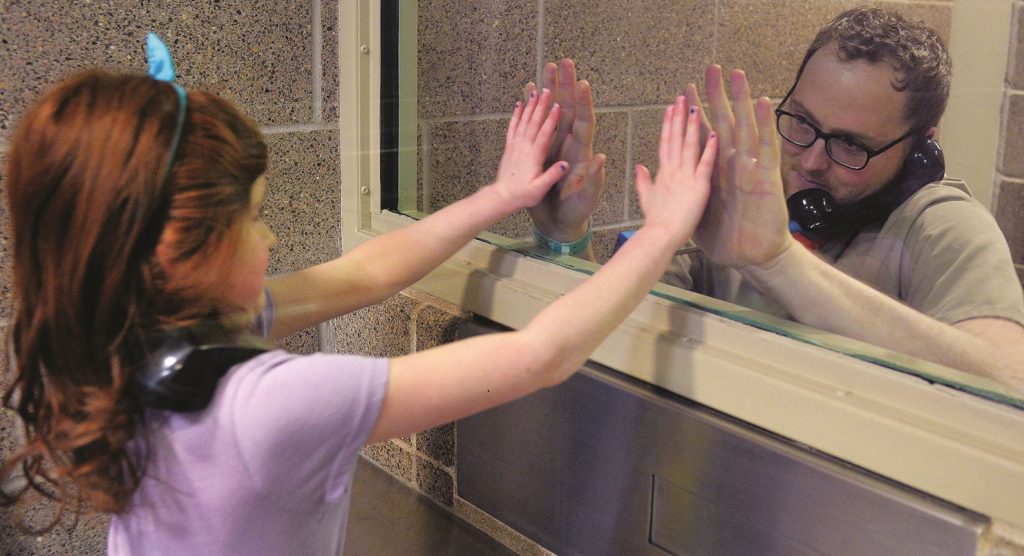Recent studies show three alarming incarceration-related statistics. Firstly, studies show that an average of 1 in 2 Americans has experienced a relative being sent to prison. Research also states that 25% of the world’s incarcerated prisoners are from America, even though the U.S. only accounts for less than 5% of the world’s population. And lastly, studies show that 5.1 million or 1 in 14 children has a parent that has been or is still incarcerated.
With these kinds of statistics, suddenly becoming a guardian for children with incarcerated parents doesn’t seem out of the realm of possibility for anyone. And even though the idea can be daunting, there are ways to ensure such children’s safe and healthy growth while still taking care of yourself and the parents. Here are some of the most important suggestions you can follow to become a great guardian to children with incarcerated parents.
For the child
- Be honest and consistent. — Proper and open communication is vital to help the children understand the circumstances they are in. Most children with parents in prison have a high possibility of getting bullied and discriminated against in school. To make sure that they feel comfortable telling you in case it happens, establish a safe environment for open communication between you. Treat them like adults and explain the situation transparently. You should also make sure that you stay consistent since any abrupt changes and inconsistencies can further complicate their confused state.
- Understand and respect the child’s feelings. — Do not force them to be okay with it, and do not expect them to understand everything instantly. Acknowledge their fears and concerns and validate their feelings. Constantly assure them that they are not alone.Widen your understanding, especially if they act out. Understand that this can be a coping mechanism, and being too hard on them can only add to their confusion. Know that more than being angry, the dominant feeling could most probably be sadness.
- Find an alternative avenue for their frustration. — They need an outlet for their feelings. Finding an avenue to express their emotions can be the best way to help them find mental and emotional stability in such trying times. Sports can be a good way for them to ease their minds. Art is also a good way to express themselves. Find them a hobby that they’d instantly take an interest in and actively support them in pursuing it.

For the parents
- Keep them in the loop. — One of the hardest parts of being incarcerated as a parent is not being able to see your children progress in life. Missing the milestones in their children’s lives can be difficult for any and almost all parents. Help them survive the hardships of prison by inspiring them.Make it a point to give them updates about their children’s accomplishments. Let them know how their children are doing. Make sure to be transparent and share both positive and negative news about the children’s behavior at home and in school.
If it will benefit both parties, making sure they remain connected should be a priority.
- Encourage both parties to see each other. — Making sure that being imprisoned won’t affect their relationship with their children is the goal. Make it a point that they would see their kids at least once a month to strengthen or at the very least maintain their relationship.
- Support their preparation for life outside of prison. — Give them hope. Prison, after all, is a rehabilitation center where people who’ve committed societal crimes are sentenced to repent and change their ways. Help them get back on their feet. Encourage them to participate in rehabilitation programs. Do your research and check if there are educational and vocational classes they can take while they’re inside. There are records of people who’ve gotten their degree while doing their time. With a little support, maybe they can be a part of that statistics instead.
For you
- Ask for help. — Remember that you are not alone. There are people out there who are willing to help. Some institutions can help with acquiring affordable bail bonds. There are pro bono lawyers that can help the defendants fight their cases. Some programs can aid you throughout this situation. There are parenting programs and support groups that can help you adjust and give you financial, emotional, and physical assistance.
Remember, you are not alone.
- Don’t forget to take care of yourself. — The children won’t be able to survive if you aren’t there. Do not forget to stay healthy. You are not only responsible for yourself now. With the responsibility to take care of other people, the need for you to take care of yourself increases. Eat healthily, stay physically active, and don’t ignore your mental health.
- Don’t treat yourself as an aid but as an actual parent. — Do not think of yourself as a replacement. You are also not a placeholder. Keep in mind that your relationship with the children is as important as the one they have with their biological parents. Treating them as your children would also help in making them feel safe. It would help the parents feel more relieved as well. It’s a win for everybody.
All in all
Having their parents incarcerated can be a traumatic experience that will impact the rest of their life. By simply being there for them and making sure that they don’t have to go through it alone can be the help they need to turn their lives around.

